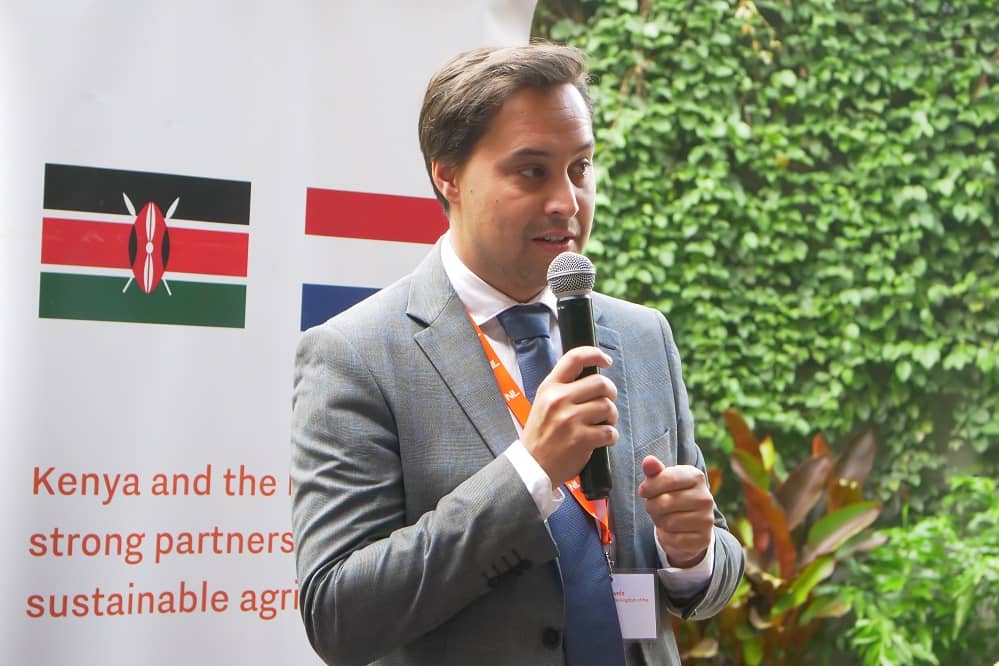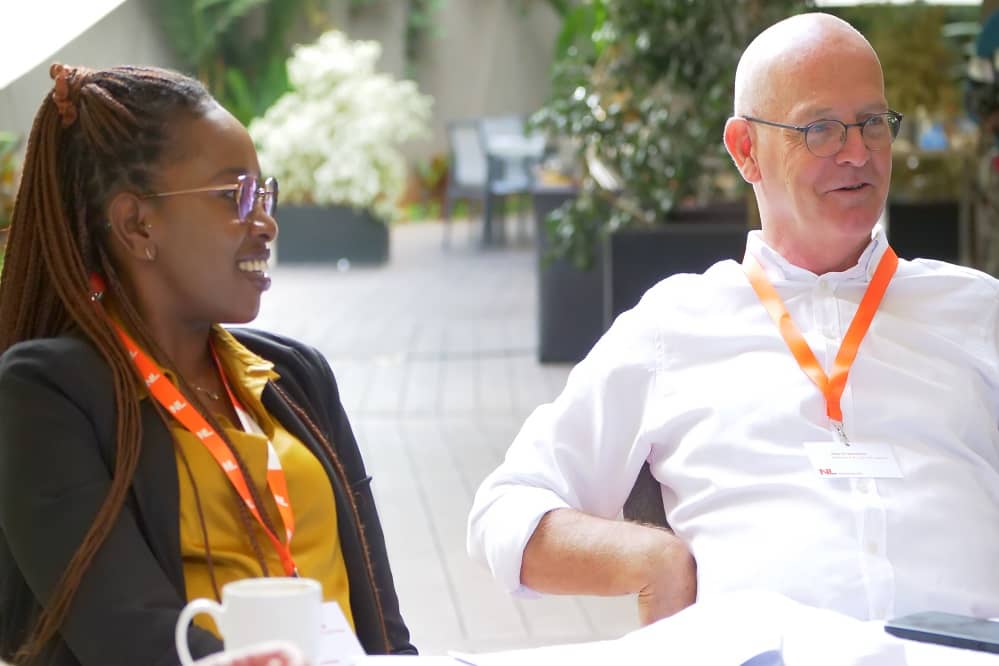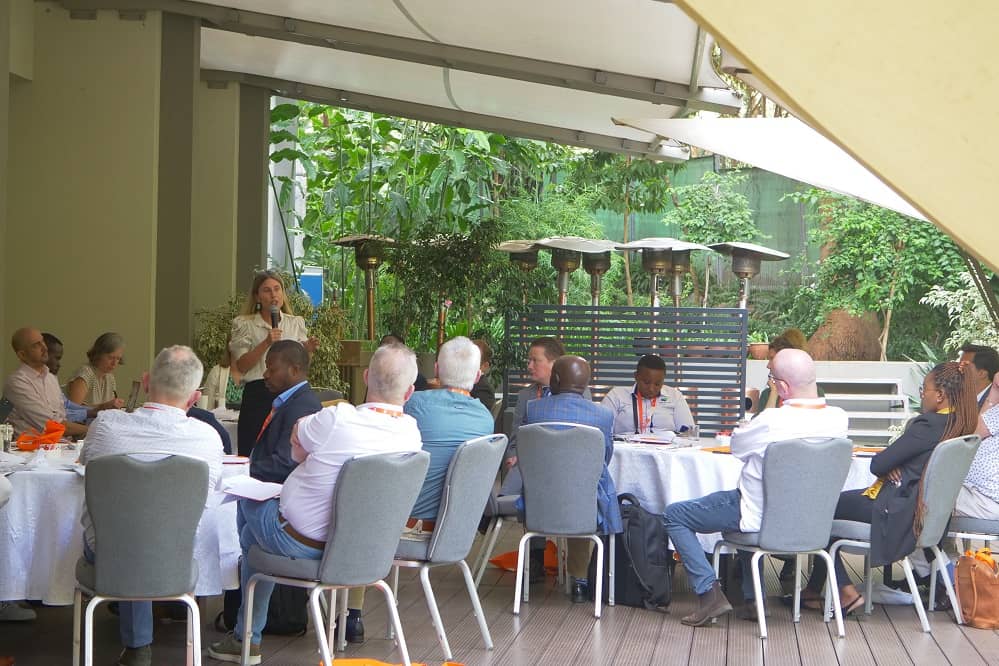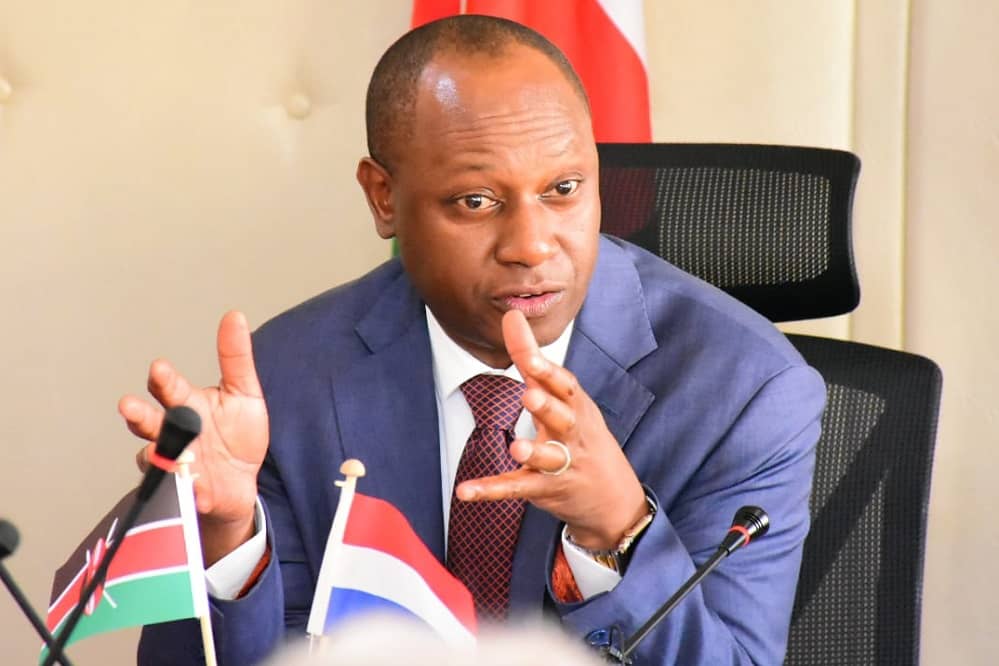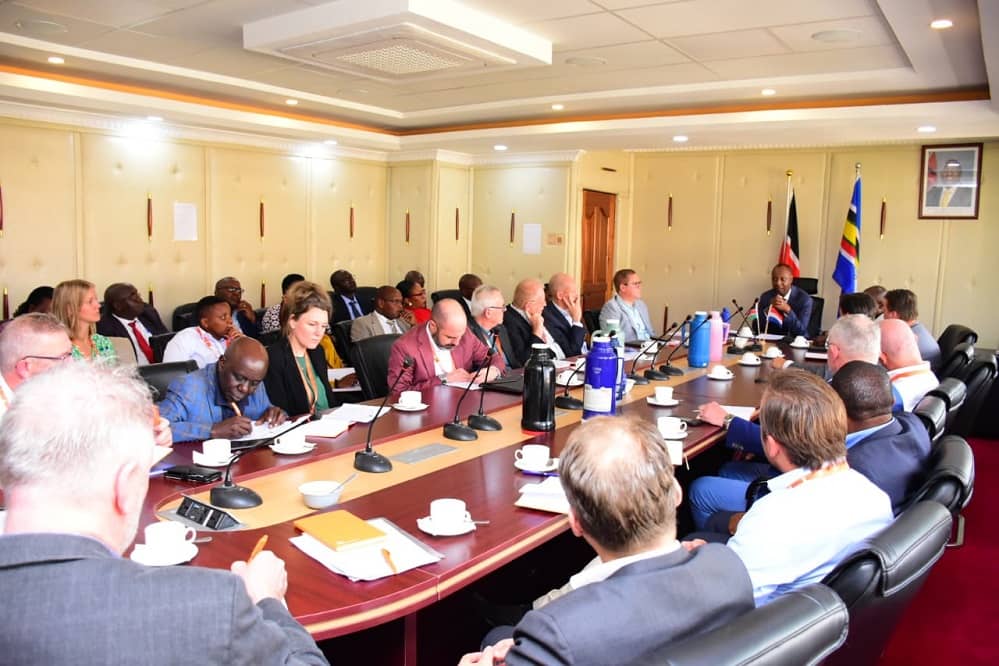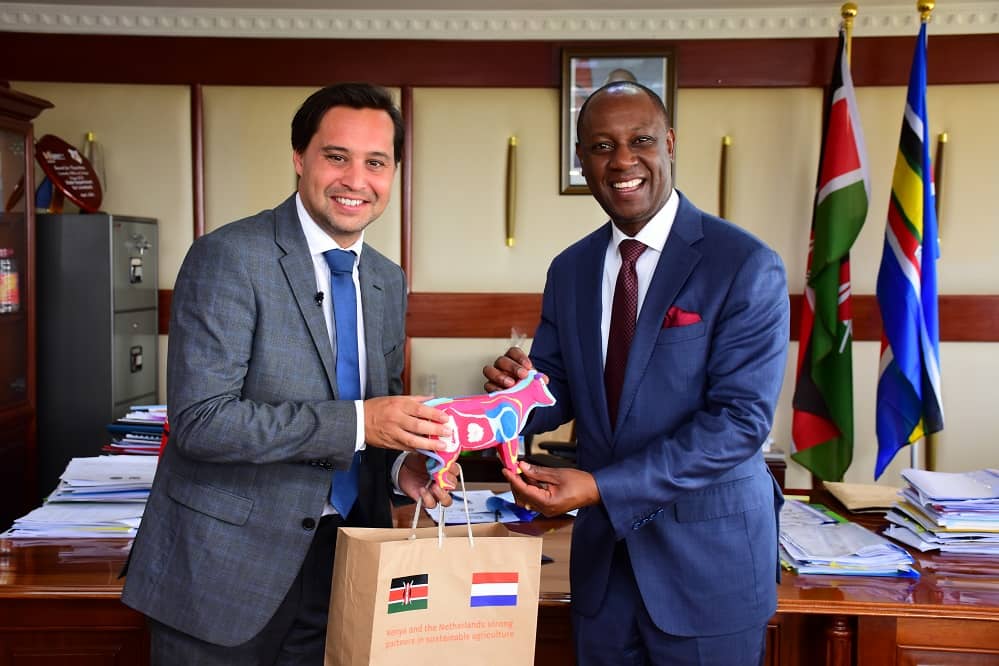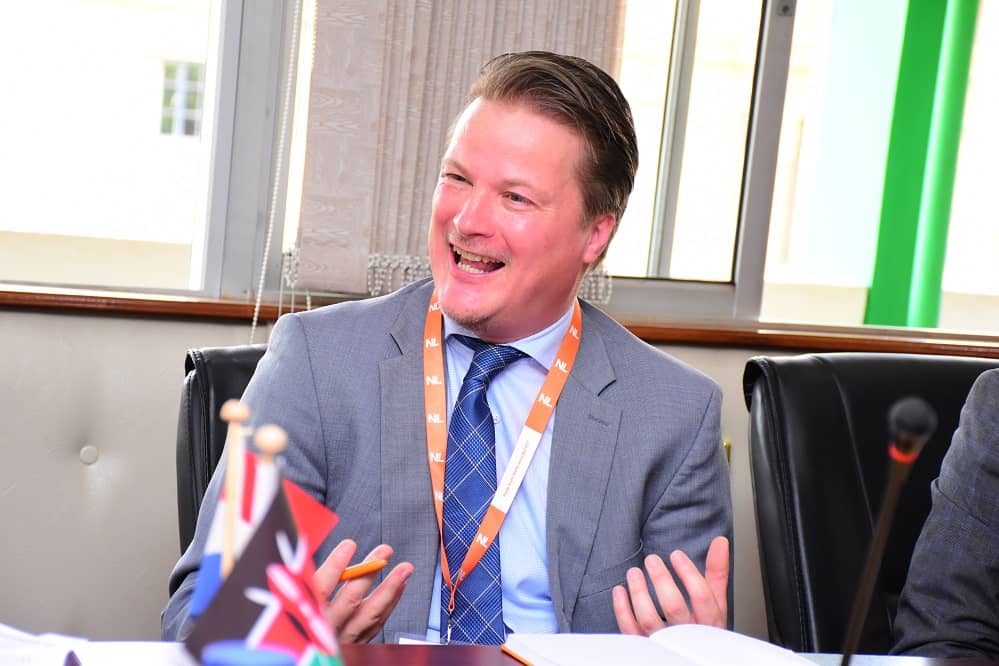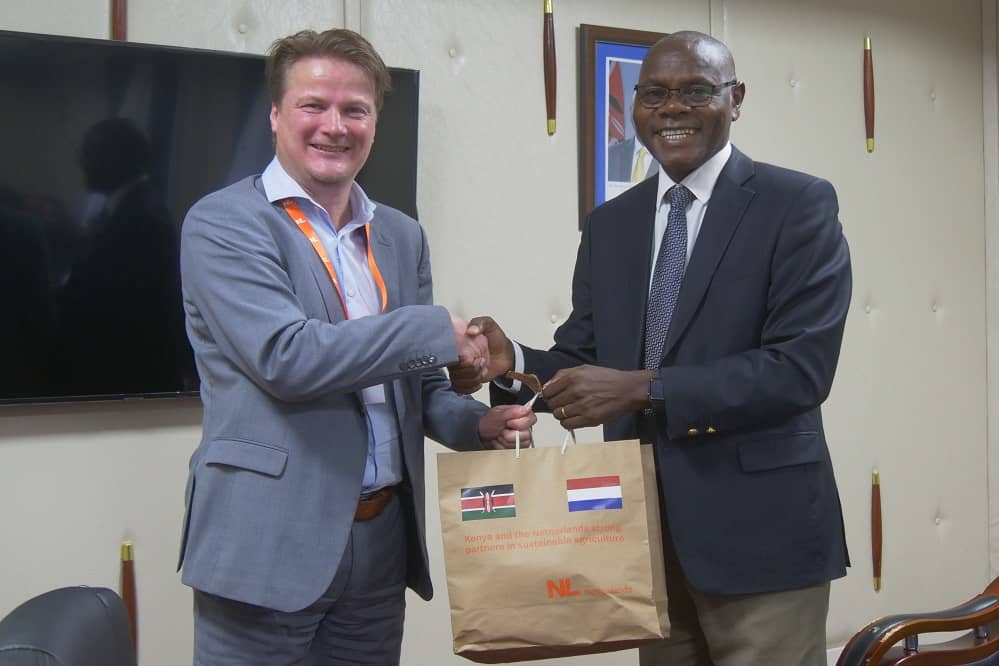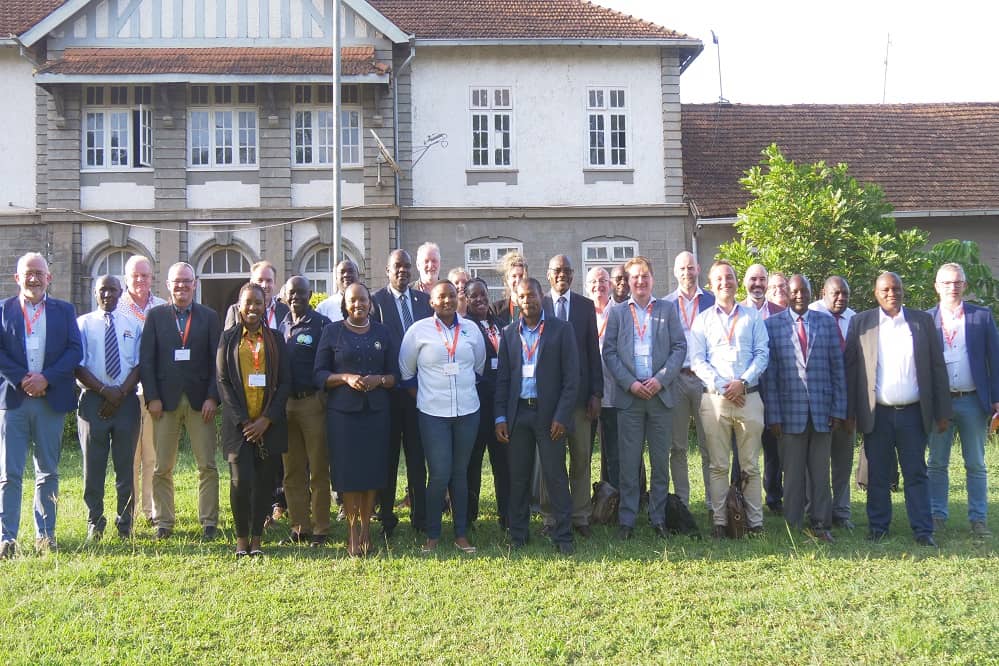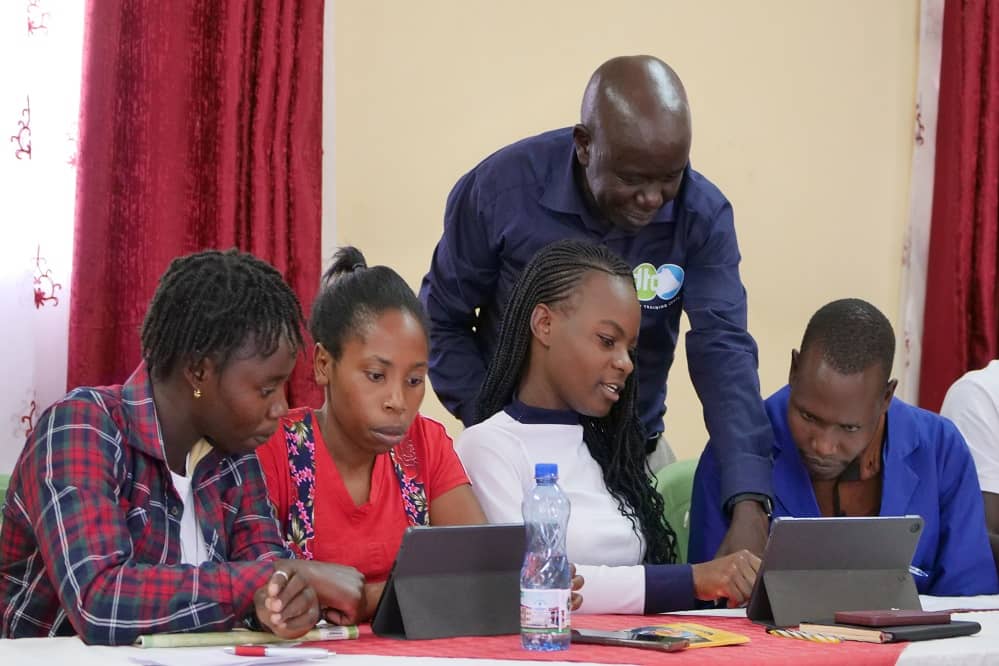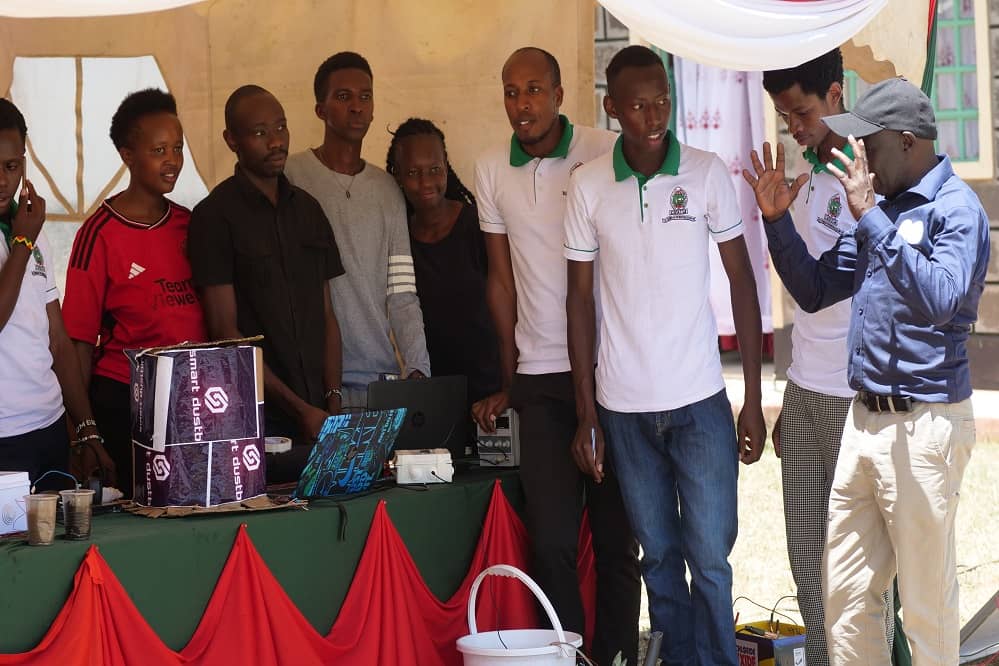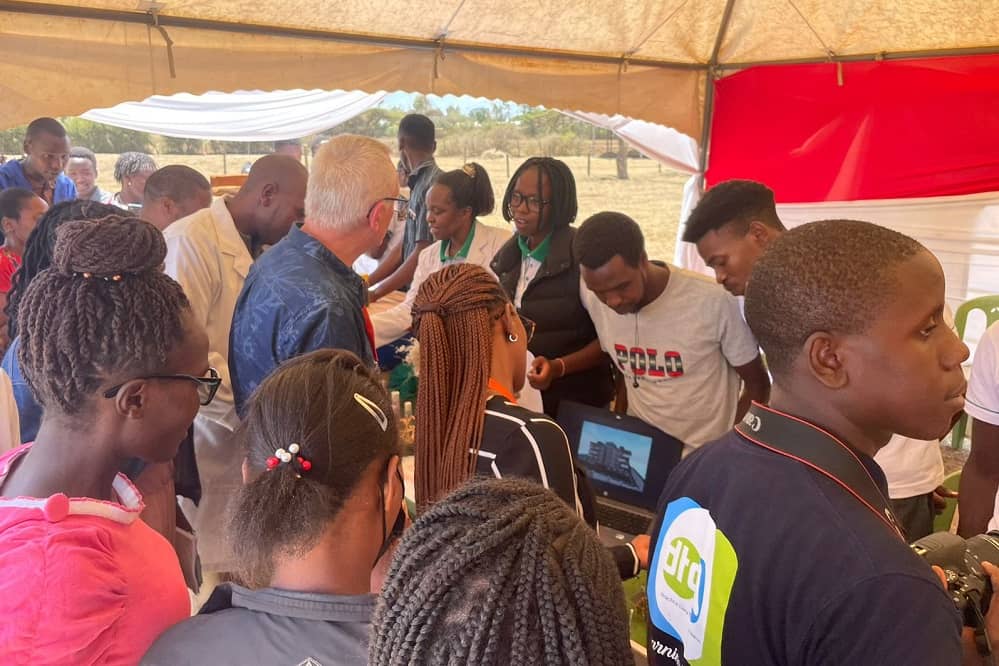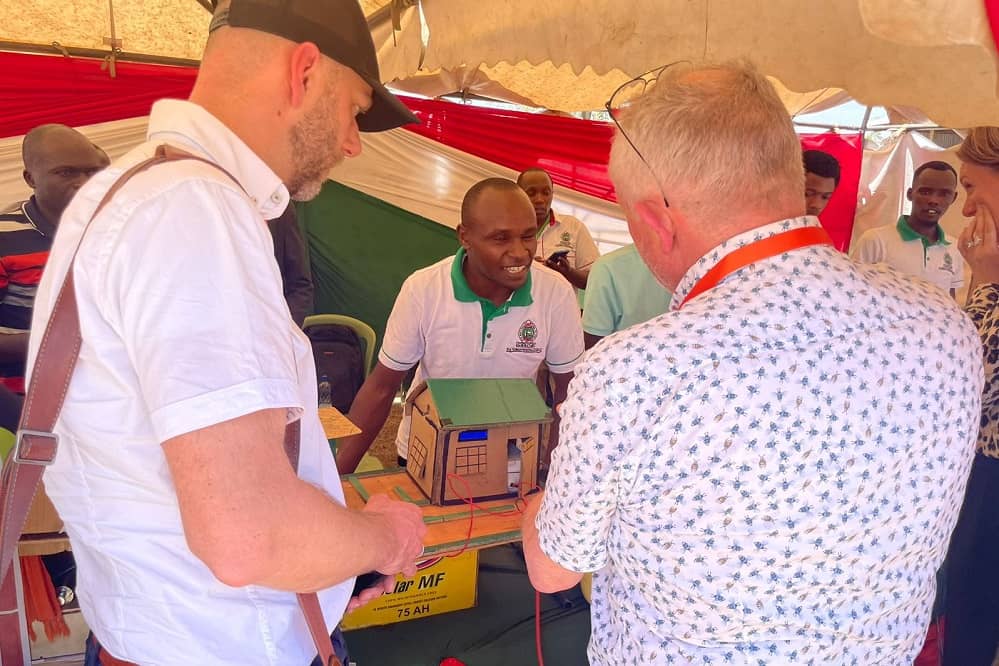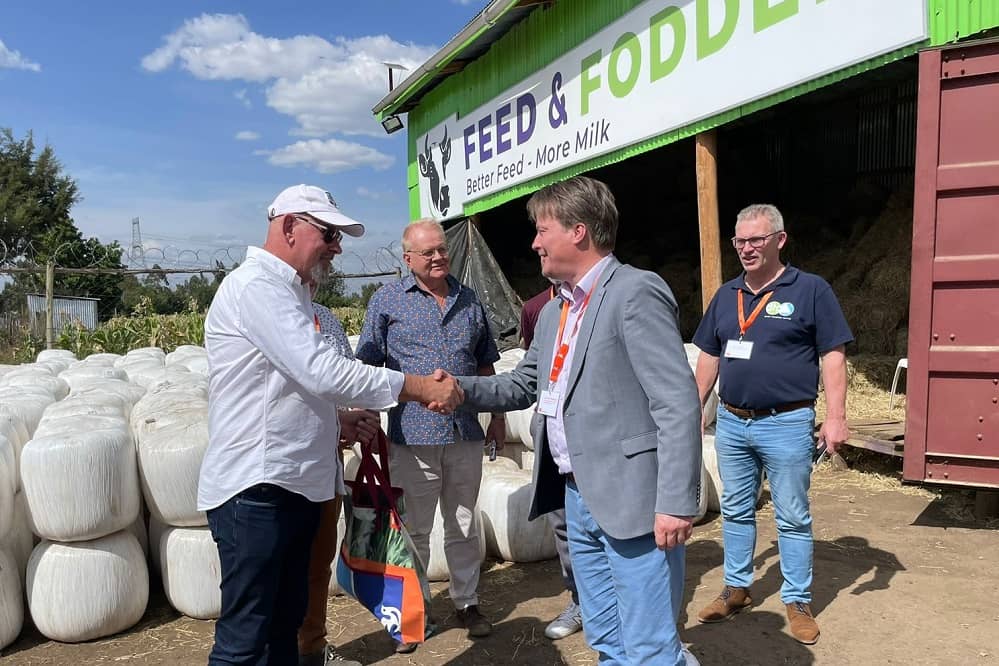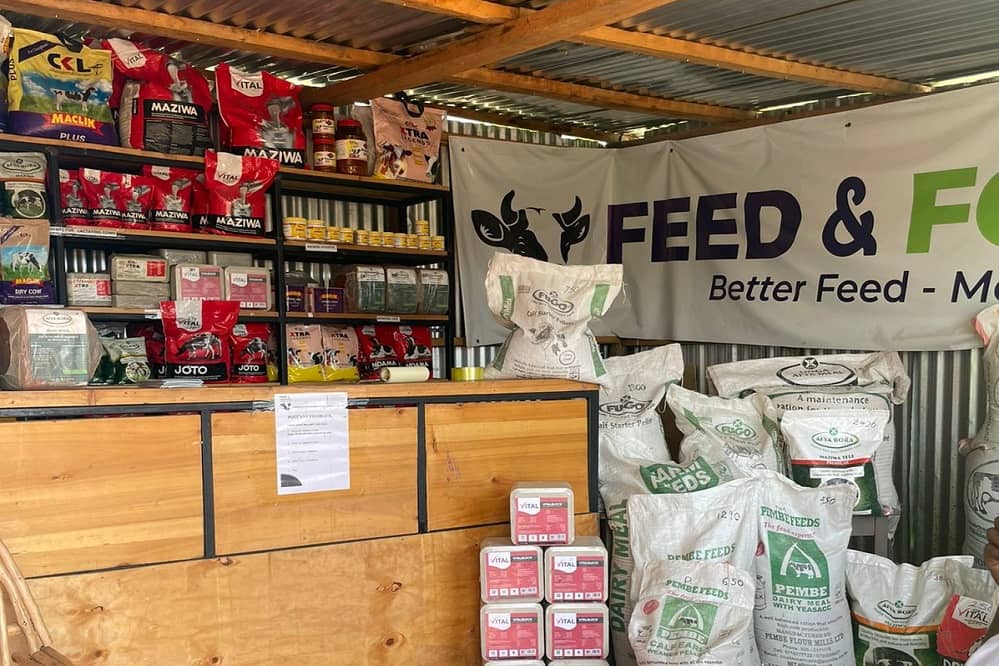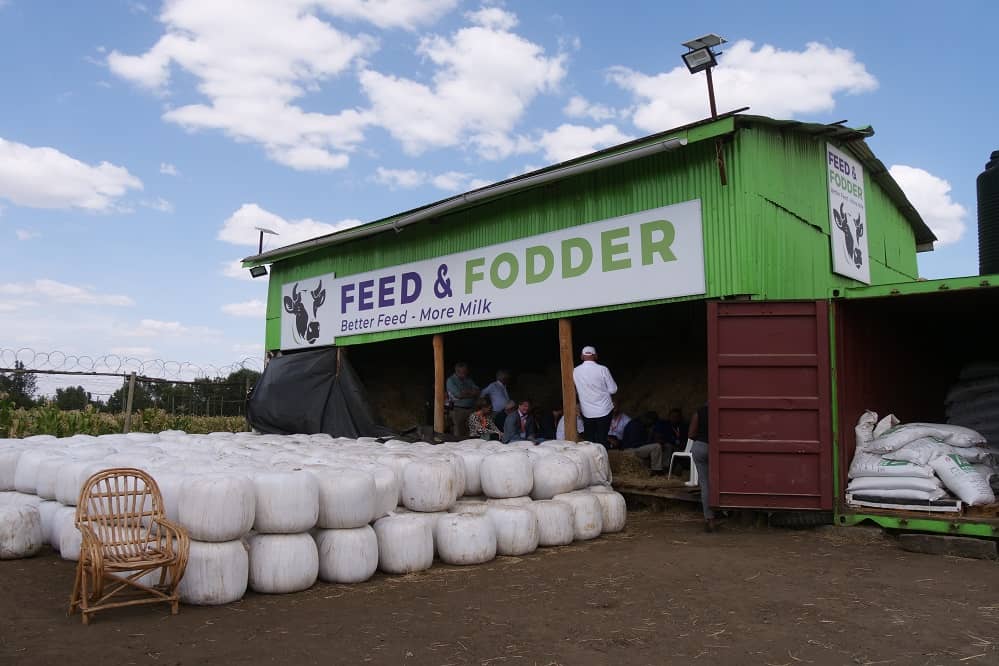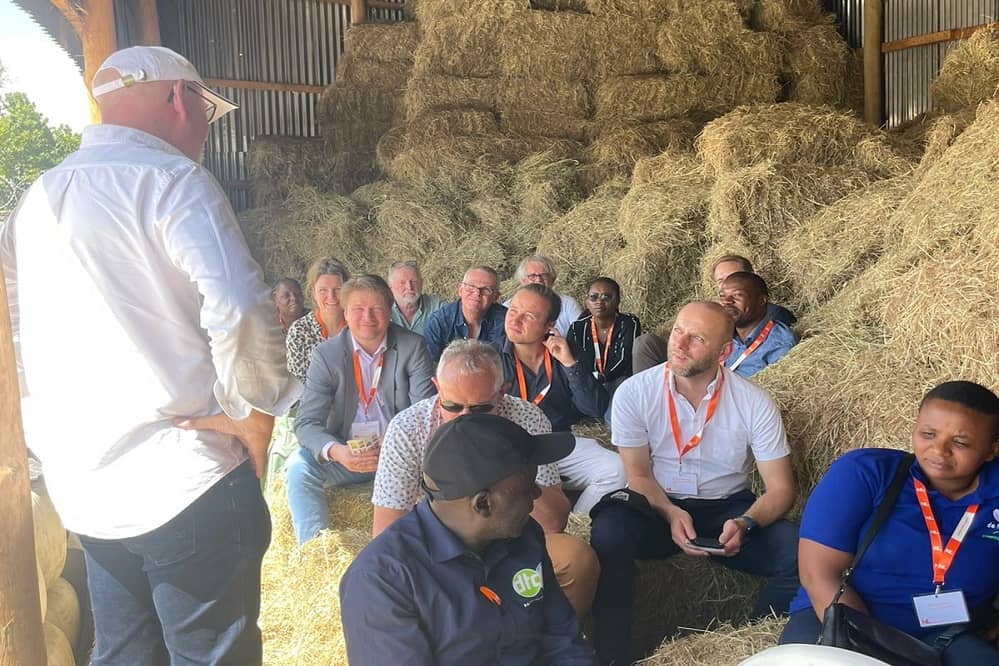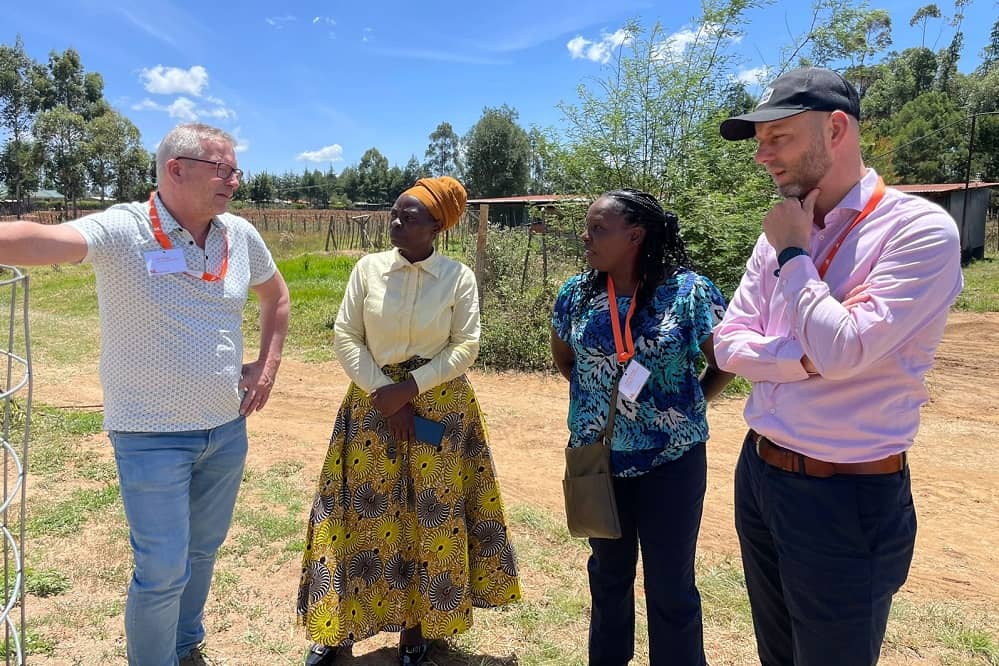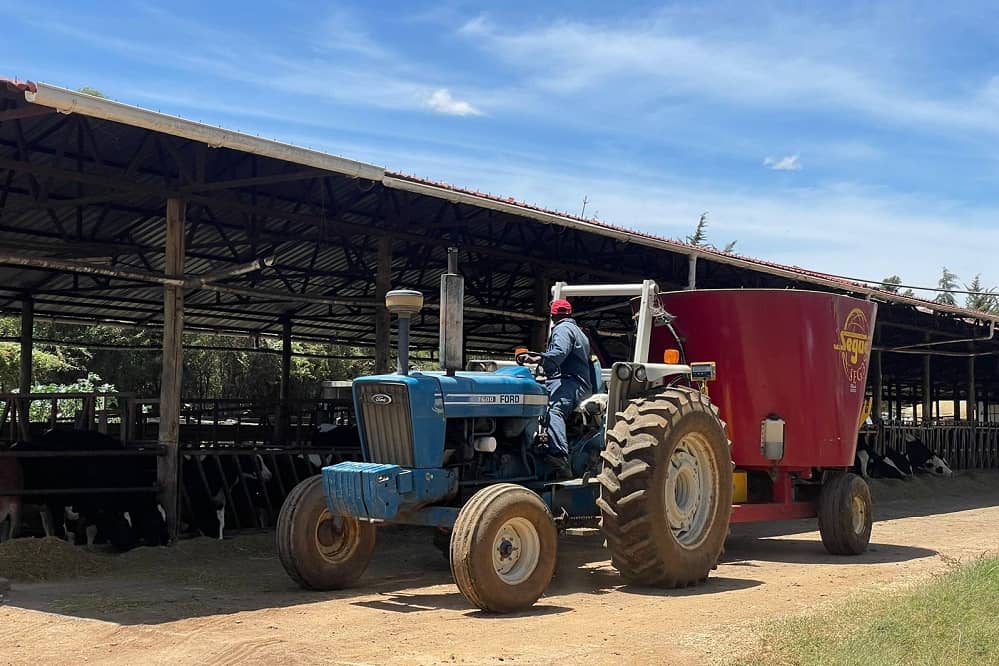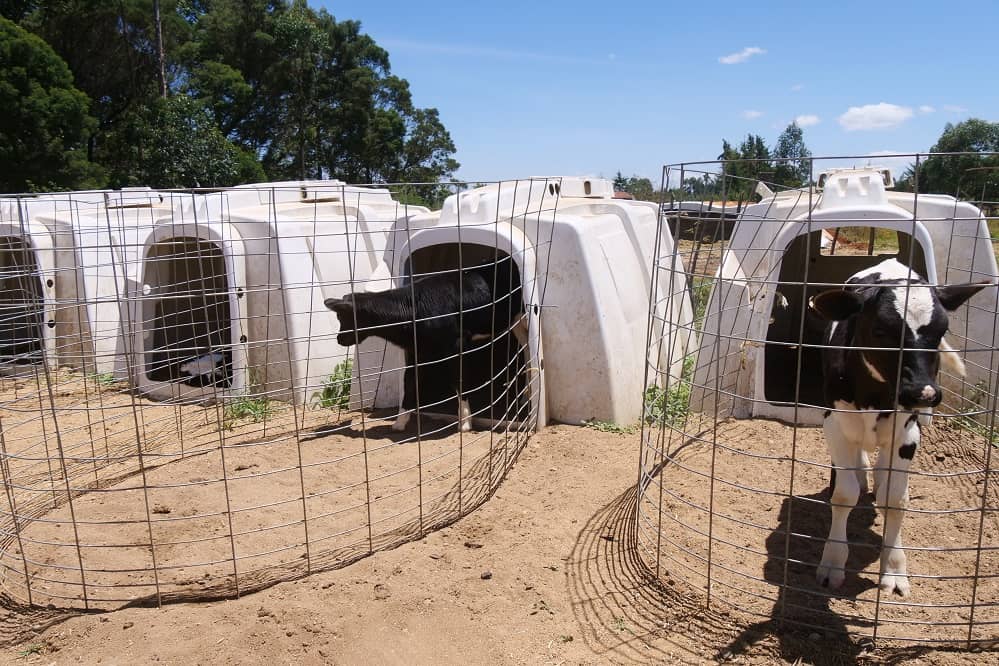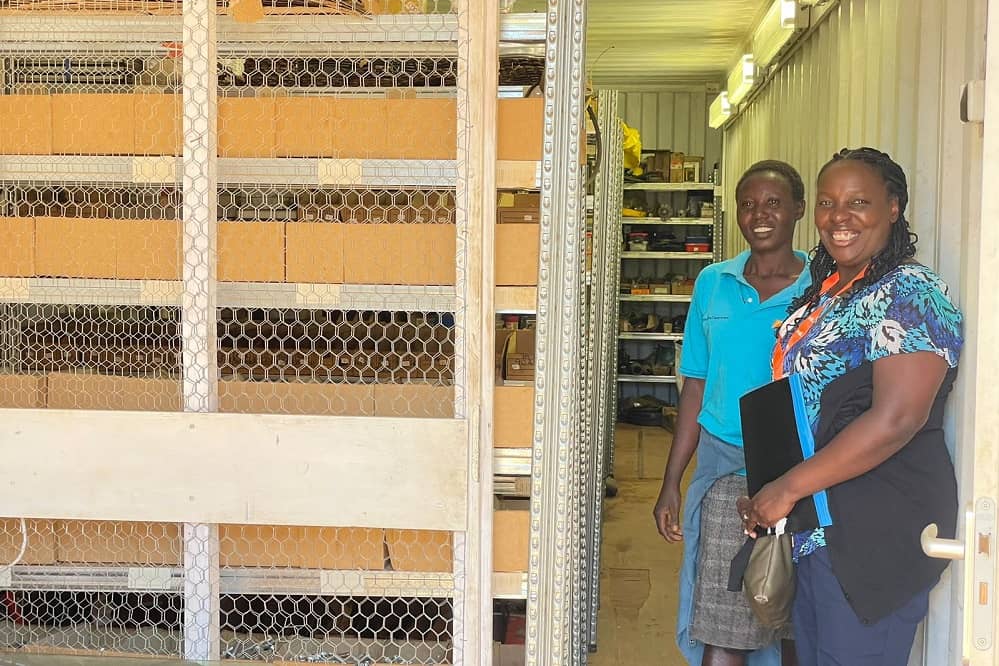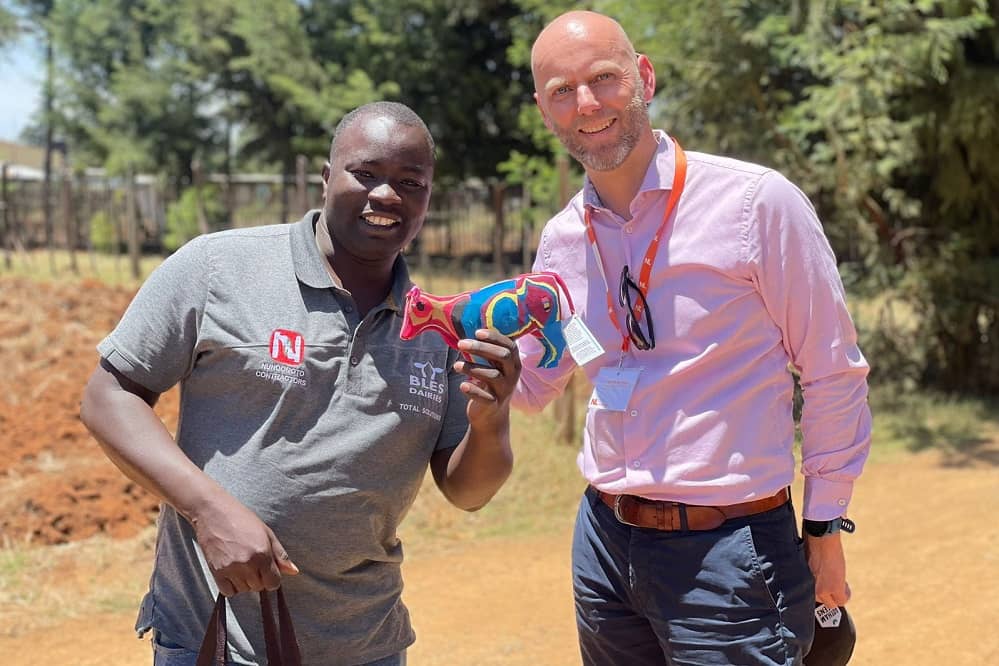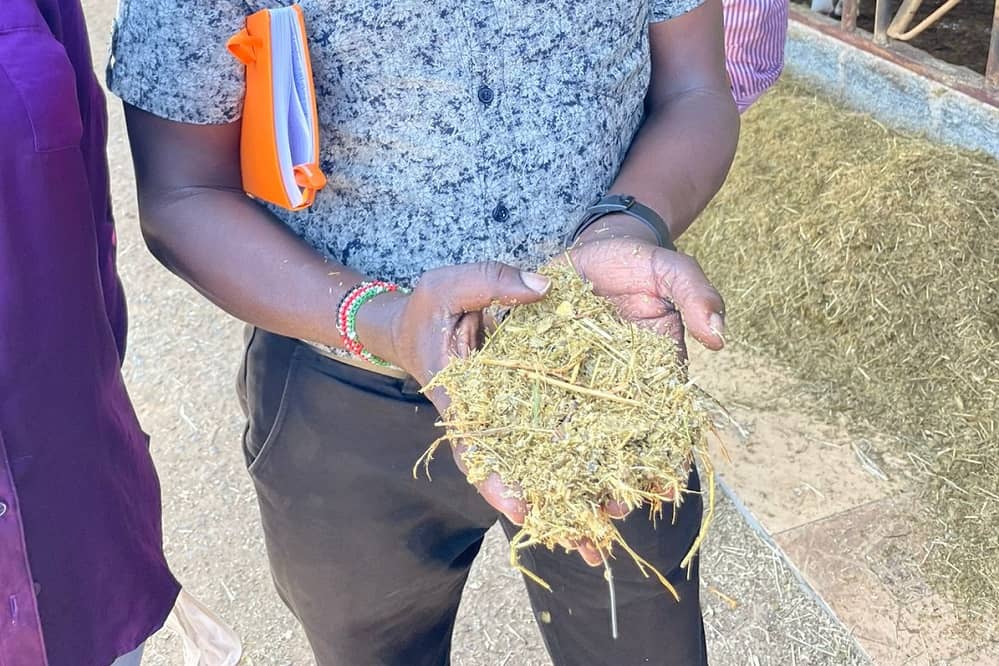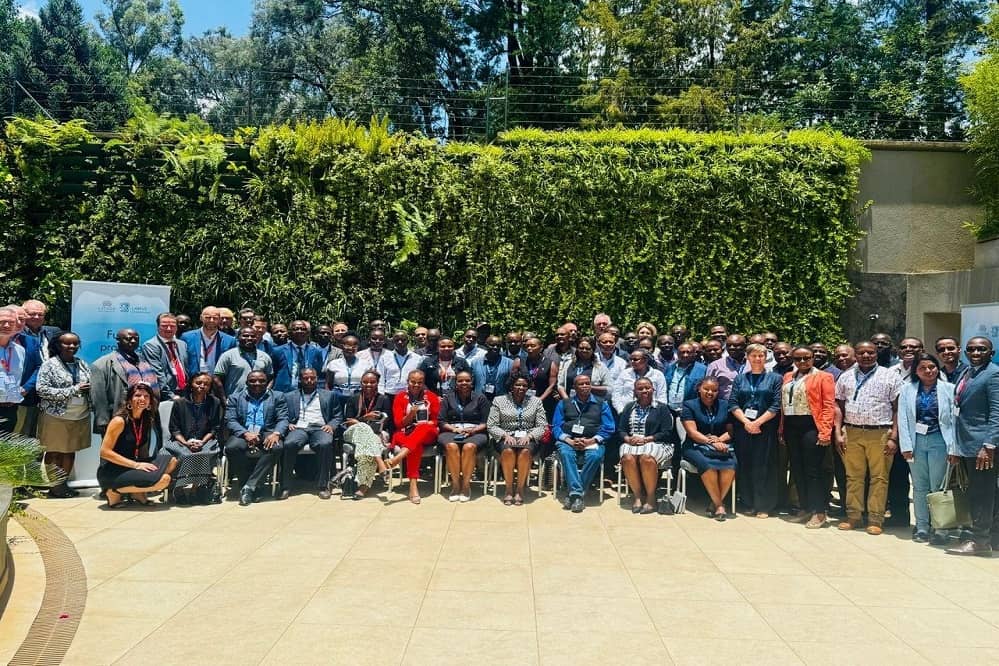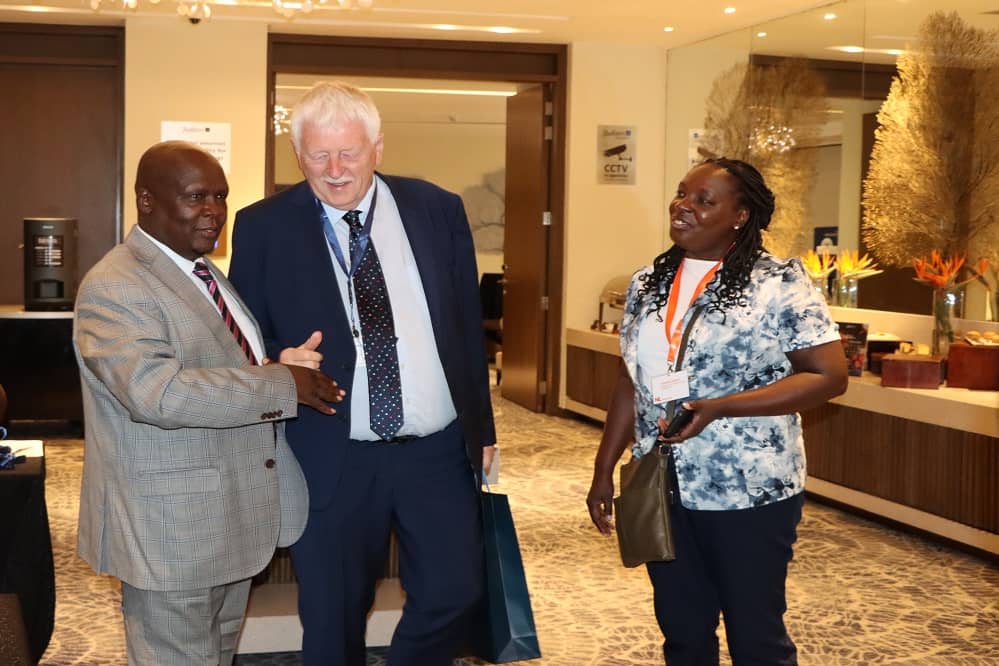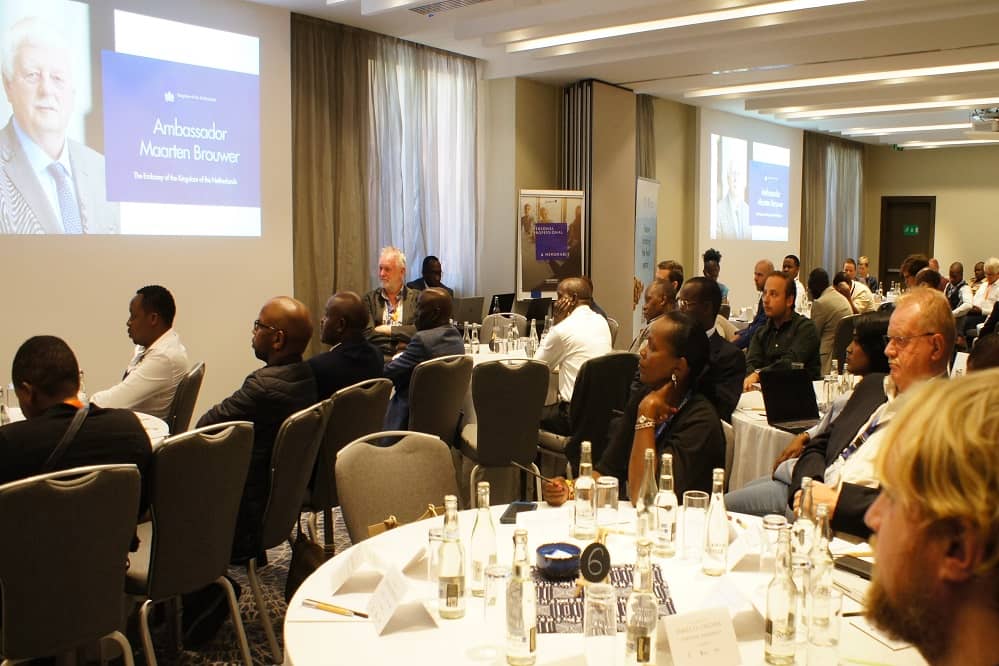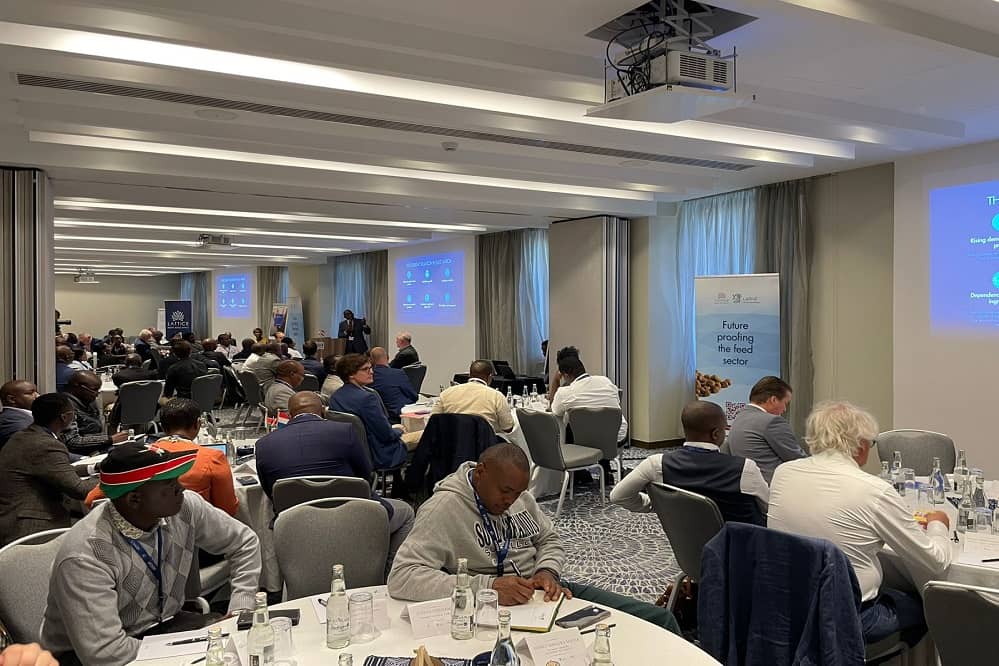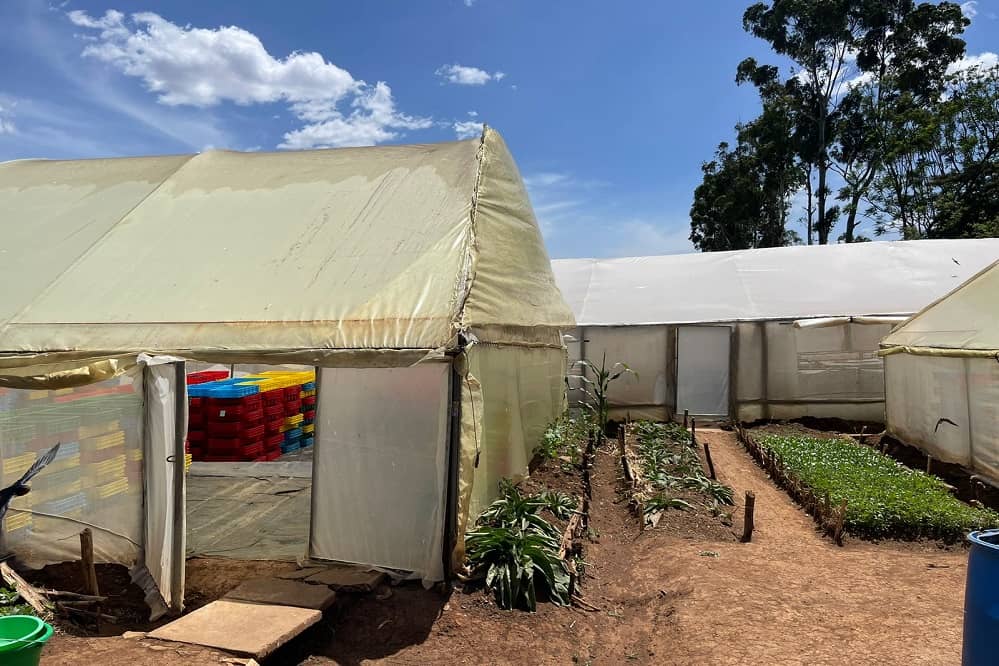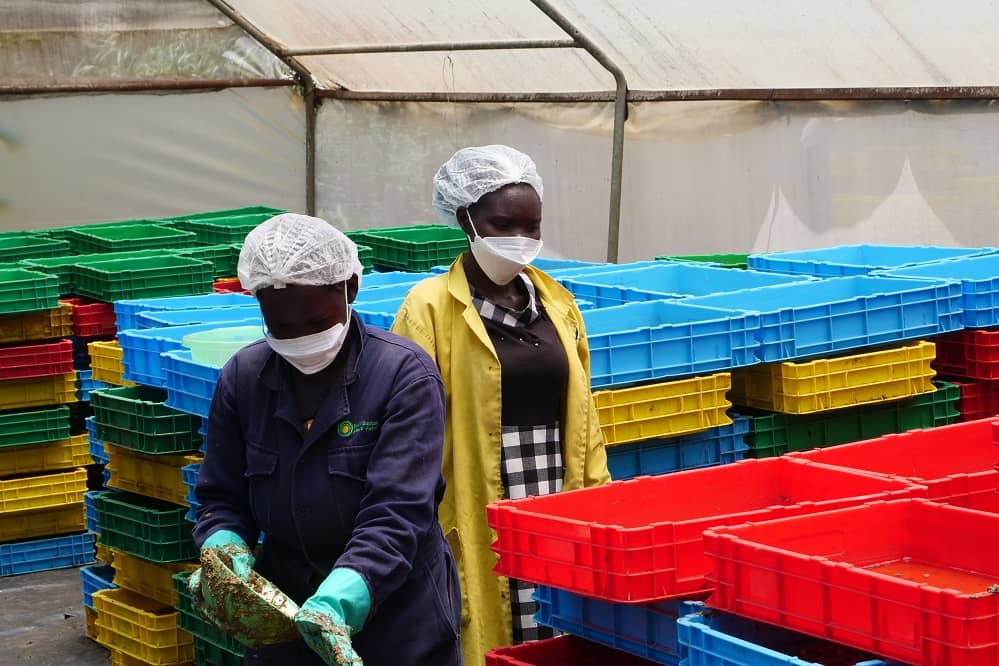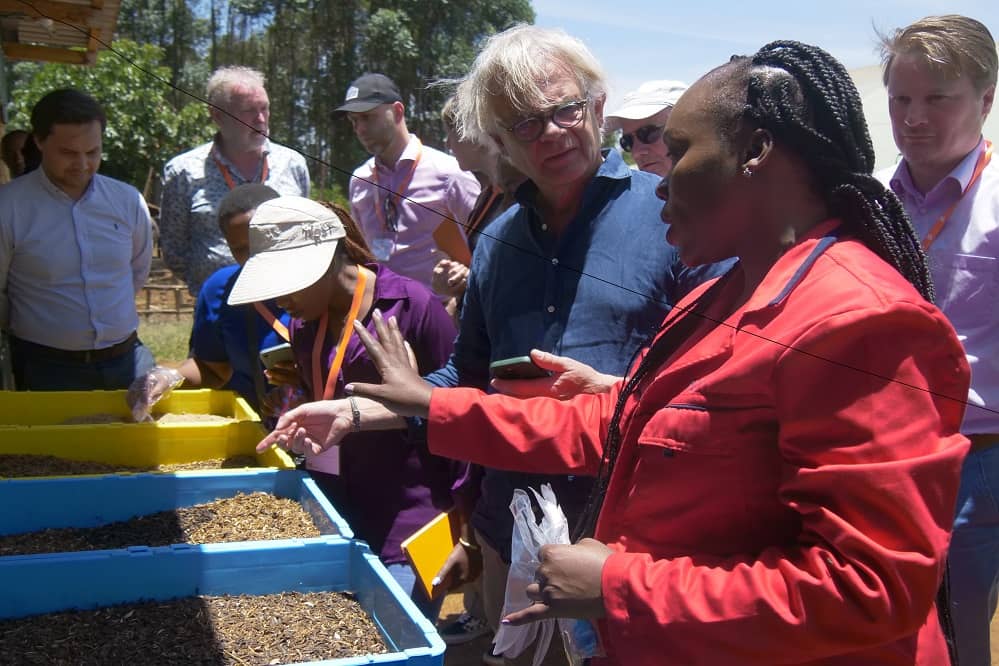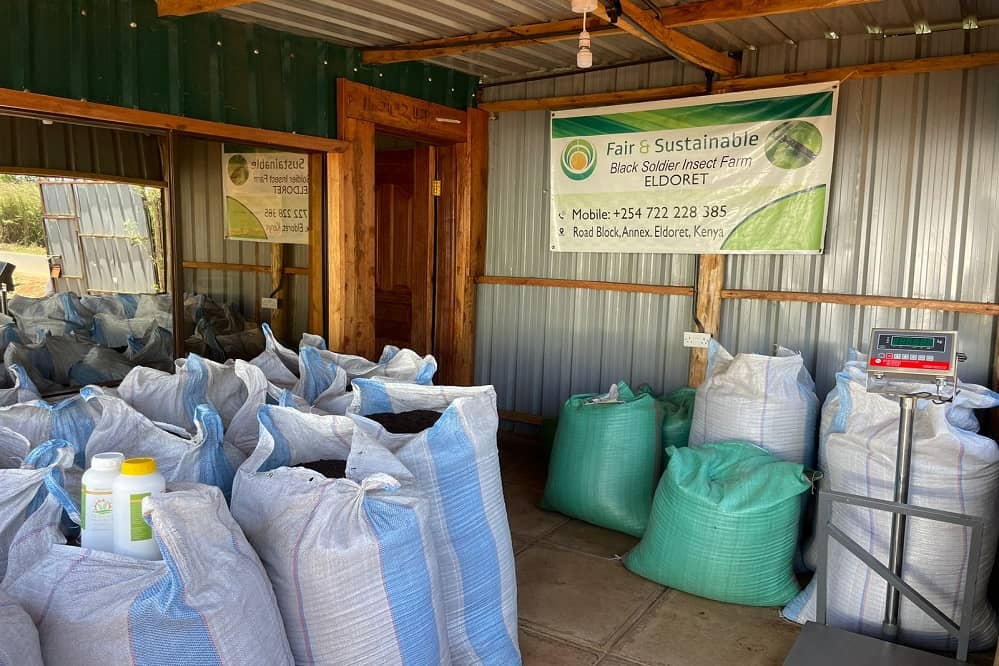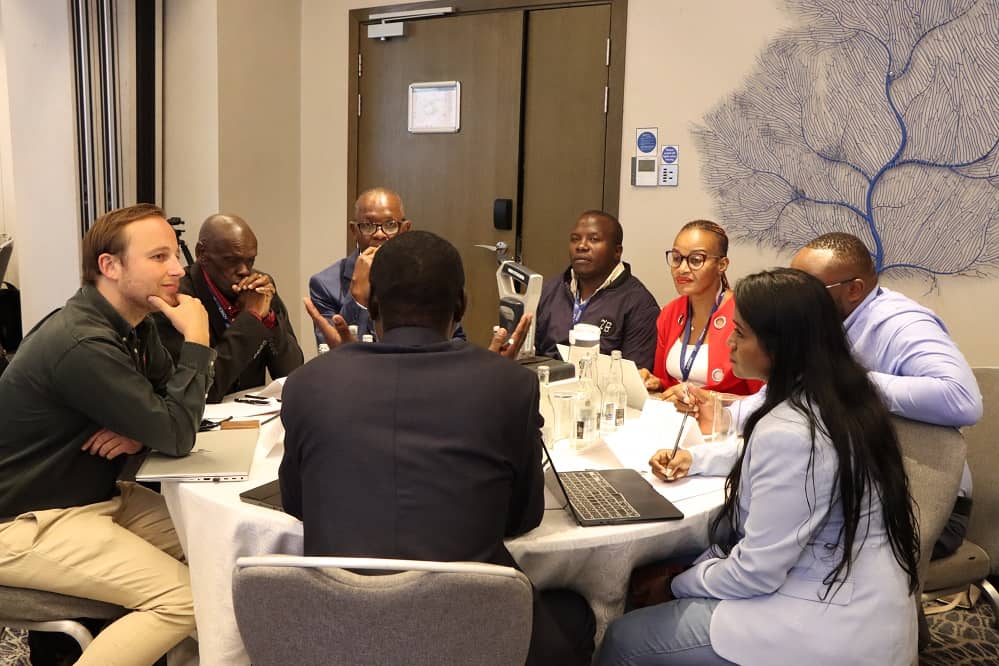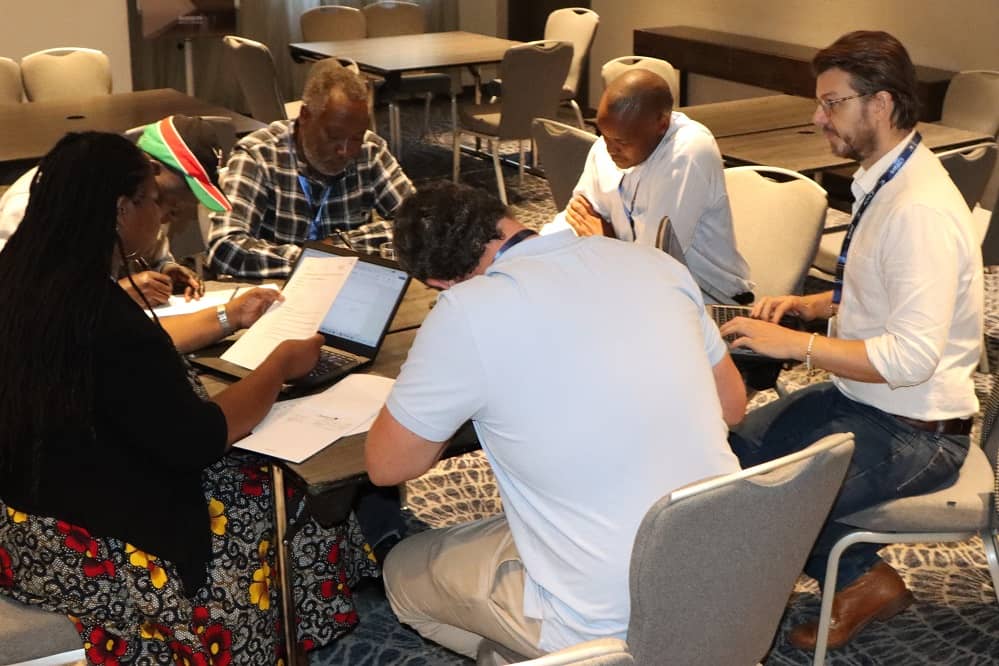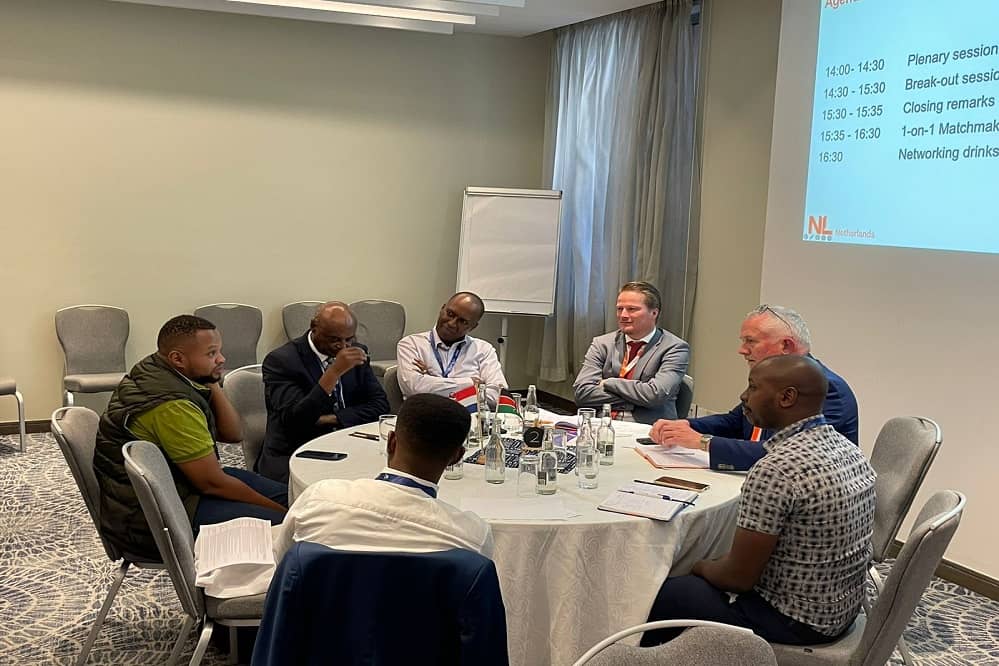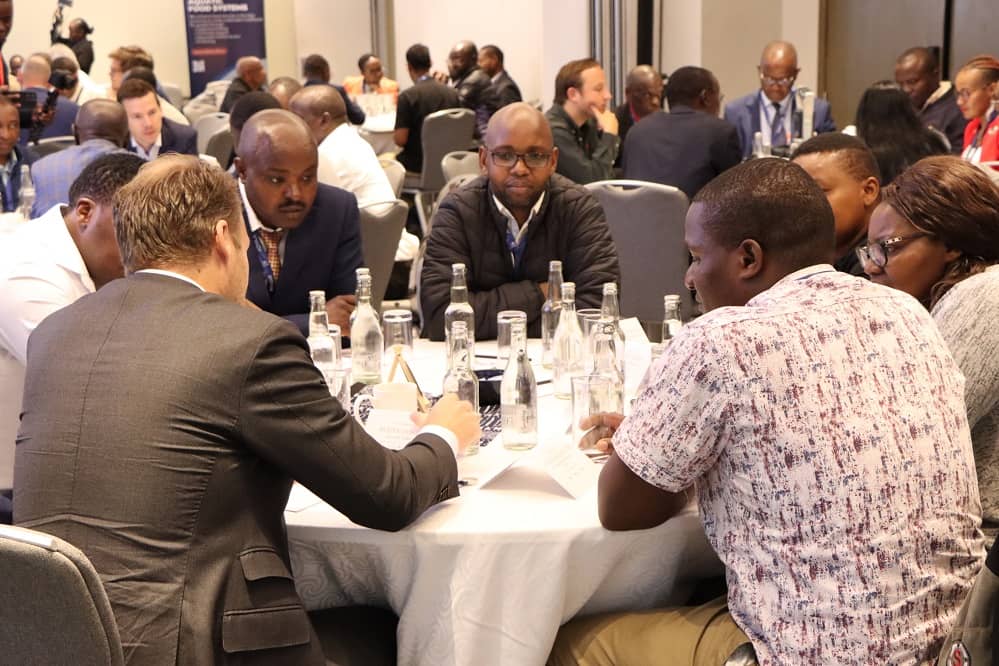The Embassy of The Kingdom of The Netherlands – Nairobi, in partnership with The Netherlands Enterprise Agency (RVO) and the Ministry of Agriculture, Nature and Food Quality of the Netherlands hosted a mission comprising of 14 companies and institutions from the Netherlands working on various areas along the dairy value chain ranging from genetics, production, processing, feed, forage, knowledge and training.

Innovation Mission on Advancing Sustainable Livestock Farming in Kenya for Strategic Partnerships between Dutch and Kenyan Companies
Led by Bart Pauwels- Agricultural Counsellor for Kenya and Tanzania at the Netherlands Embassy in Nairobi and Dr. Evert Jan Krajenbrink – Ministry of Agriculture, Nature and Food Quality, the delegation engaged with stakeholders, spanning from governmental bodies to private sector, both local and those already in collaboration with Dutch counterparts. The kick off session commenced with discussions on opportunities in Kenya’s Livestock sector, with contributions from industry experts – Gatsby Africa, International Livestock Research Institute (ILRI) and Agrithrive, who collectively reiterated that there are investors looking to invest in Kenya’s dairy sector, but face limitations such as ; most farms not being investor ready, and the nature of dairy farming in Kenya, which is primarily small holder based, hence not attractive to large investors. There is need to formalize the dairy sector for it to be more competitive and attractive for investors. Diversifying into the beef space is also an area that remains largely untapped.
The aim of the mission was multifaceted: to gain insight into the growth of the Kenyan livestock sector, innovative developments, and sector challenges; identify and develop tailor-made solutions for the local context, leverage Dutch knowledge, technology, and market opportunities in collaboration with Kenyan partners; obtain perspective into government policies regarding sustainability in the sector; and explore trends and opportunities for (public-private) cooperation between knowledge institutions and companies in research and development.
Courtesy Visit to the Ministry of Agriculture and Livestock Development, State Department for Livestock Development
The Dutch government has been involved in Kenya for several decades, employing a comprehensive approach that encompasses technical assistance, research and development, policy support, investment, partnerships, capacity building, and sustainable development. The main goal is to promote the growth and resilience of Kenya's dairy industry through collaboration.
The delegation paid a courtesy visit to, Hon. Jonathan Mueke, Kenya’s Principal Secretary of the Ministry of Agriculture and Livestock Development, State Department for Livestock Development, engaged in discussions regarding potential areas of cooperation. These discussions centered on innovative technologies, such as the production of quality animal feeds, and strategies for training farmers, with the overarching goal of reducing livestock product prices and augmenting farmers' incomes.
Hon. Mueke expressed the Ministry's enthusiasm for further partnerships to ensure responsible livestock production, enhance food security, and create export opportunities while also boosting employment. Bart Pauwels shared the Dutch Government's vision of integrating trade, foreign relations, and development cooperation in areas of mutual interest. Additionally, Dr. Evert Jan Krajenbrink emphasized the importance of collaboration between government, companies, and knowledge institutions, highlighting the "Dutch Diamond” approach. The meeting concluded with a call to action for additional input to enhance the existing memorandum of understanding between the two governments.
Meeting at Directorate of Veterinary Services (DVS)
During the meeting at DVS the different research programs and challenges were presented and discussed with the Dutch delegation. DVS itself, but also KAGRC, KALRO and the University of Nairobi presented their main research focus and approach. Subjects included genetics and breeding, diseases and the need for a surveillance system, but also cultural aspects like ageing farmers (engaging the youth) and smaller agricultural plots.
Knowledge transfer, as a catalyst to improvement of service delivery in the dairy sector
A visit to the Rift Valley Institute of Science and Technology (RVIST) showcased the impactful collaboration between the public and private sectors in knowledge transfer. RVIST, a technical and vocational training institute, faces challenges in its dairy farming curriculum, including limited access to practical training farms and a knowledge-focused approach. However, a partnership with The Practical Dairy Training Centre (DTC) from the Netherlands, now hosted at RVIST, has revolutionized training methods. Through innovative tools like Kucheza - a game that simulates dairy farm management - trainees gain practical skills. The winner of the game is the trainee who completes the game and achieves the highest profit margin.
Eric Kimalit, Manager of DTC, highlighted the increasing interest of youth in the dairy sector and emphasized the role of technology in training. Additionally, exchanges between Kenyan and Dutch trainees further enhance knowledge transfer. This collaboration underscores the power of partnerships in advancing the dairy industry.
Feed and Fodder
Further along the route, the delegation visited Feed and Fodder, a Dutch-owned company in Kenya specializing in fodder production. Their aim is to support farmers in maximizing milk production by providing high-quality feed year-round, which makes up 95% of the cows' intake. Johan Fieten, the Director, highlighted challenges in the feed industry, such as the lack of standardized quality parameters leading to livestock loss for farmers. In Kenya's predominantly smallholder-based dairy sector, where 80% of producers operate informally, many feed their cows low-nutrient waste. This perception of high feed costs hampers silage sales, though a shift is occurring with the rise of entrepreneurial farmers. However, barriers like high machinery investment impede scalability, urging innovation. One proposed solution is innovative financing, such as using silage bales as collateral, recognizing them as valuable assets.
Total Solutions by Nundoroto Contractors
In Uasin Gishu county, the team visited Nundoroto Contractors, specialists in feed and fodder production. They have partnered with Bles Dairies East Africa, an animal genetics and nutrition company, to form "Total Solutions," covering the dairy sector from "Seed to Feed" and from "Feed to Farmgate". This collaboration has led to Nundoroto's expansion of silage production from 300 to over 4,000 acres. For Bles Dairies, this partnership is mutually beneficial as it allows them to target clients more effectively in the North Rift Region, a key area for dairy production in Kenya due to its favorable conditions and potential for growth.
Future-proofing the feed sector in Kenya
In order for any dairy sector to thrive, feed is of utmost importance. Kenya is currently facing challenges regarding feed and fodder, which threaten its long-term growth and sustainability. To delve into these challenges and explore solutions and investment opportunities, a roundtable meeting was organized by Larive International, bringing together stakeholders in the sector.
The session was opened by Ambassador Maarten Brouwer from the Embassy of the Kingdom of the Netherlands in Nairobi. He emphasized the opportunities that Kenya possesses in comparison to its East African counterparts, which should be leveraged upon.
During the discussions, several critical issues were raised, although not new. These included the lack of standardized quality parameters for feed, competition between animal feed and human food, and the difficulties faced by smallholder farmers in accessing affordable and nutritious feed options. Additionally, the focus of animal genetics on dairy or beef production presents significant challenges, along with limited access to modern technologies and infrastructure, which hinders efficient feed production and distribution. To address these concerns, stakeholders should explore alternative nutrient sources such as grass forages and alternative proteins like the black soldier fly, as demonstrated at the Fair and Sustainable Insect Farm in Eldoret.
Investing in research and development, as well as improving transportation networks, can enhance access to quality feed. Education on optimal feeding practices and sustainable agriculture can empower farmers and reduce environmental impact. Implementing quality control measures and certification standards is crucial, while innovative financing solutions like microloans can assist smallholder farmers in obtaining quality feed. Proactively addressing these challenges can future-proof Kenya’s dairy feed sector for robust growth.
As the four-day mission came to a close, the visiting delegation companies participated in a business speed-dating session to explore potential innovative collaborations with dairy sector companies. It is evident that the sector is ready to embrace innovative solutions and technologies to improve yields, increase farmer incomes, and bring together stakeholders across the entire value chain for a more resilient sector in the future, while also promoting trade cooperation between Kenya and the Netherlands.
For more information about this sector or any other agricultural questions feel free to contact us via nai-lnv@minbuza.nl. For the latest updates on activities, new articles and more follow us on X (Twitter) on @NLAgiKenya and subscribe to our newsletter by sending us an email. In case of any non-agriculture questions for the Netherlands Embassy in Nairobi, see this website for contact information
